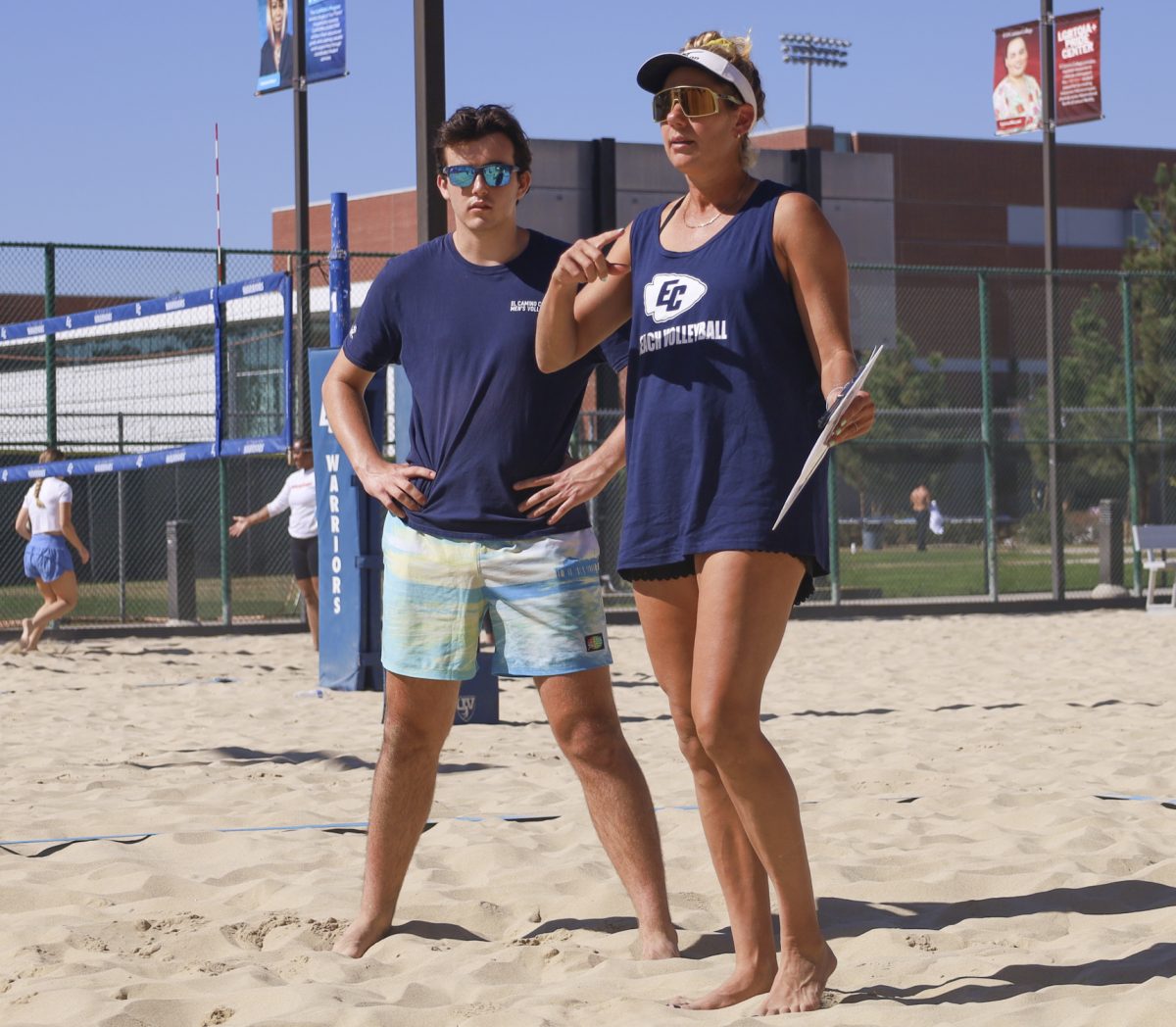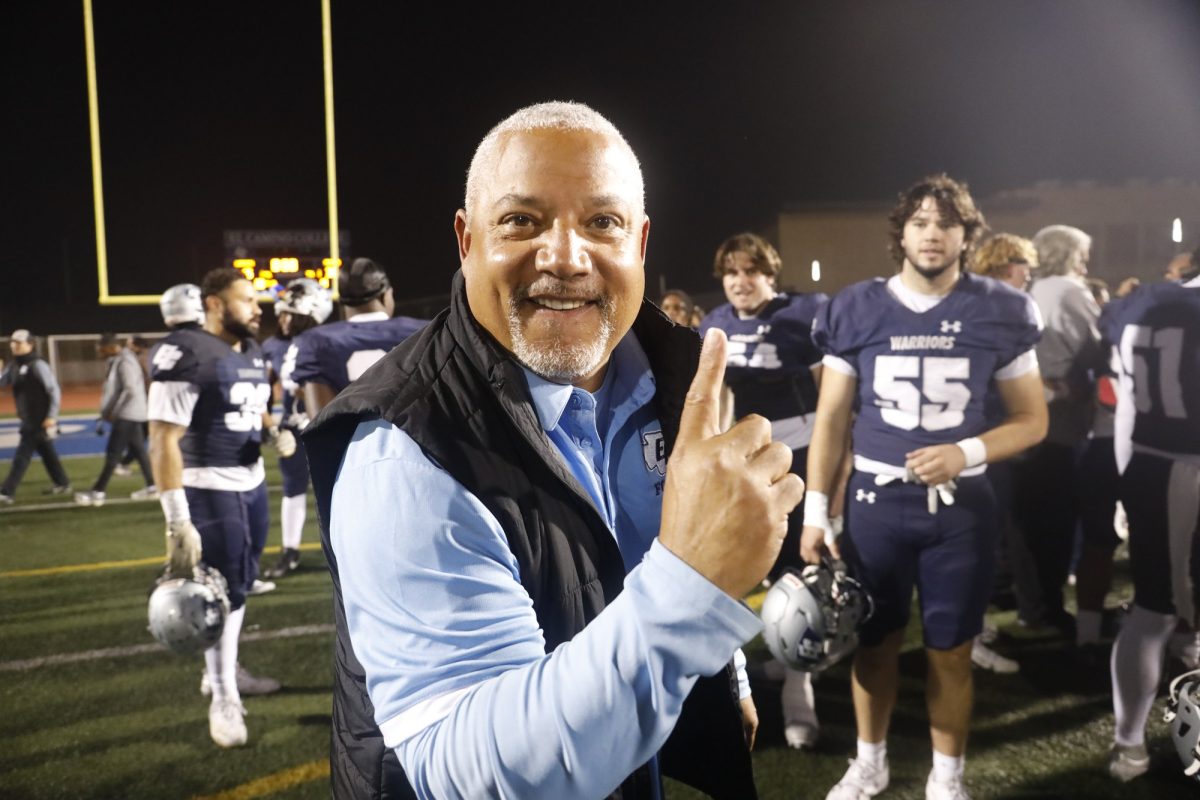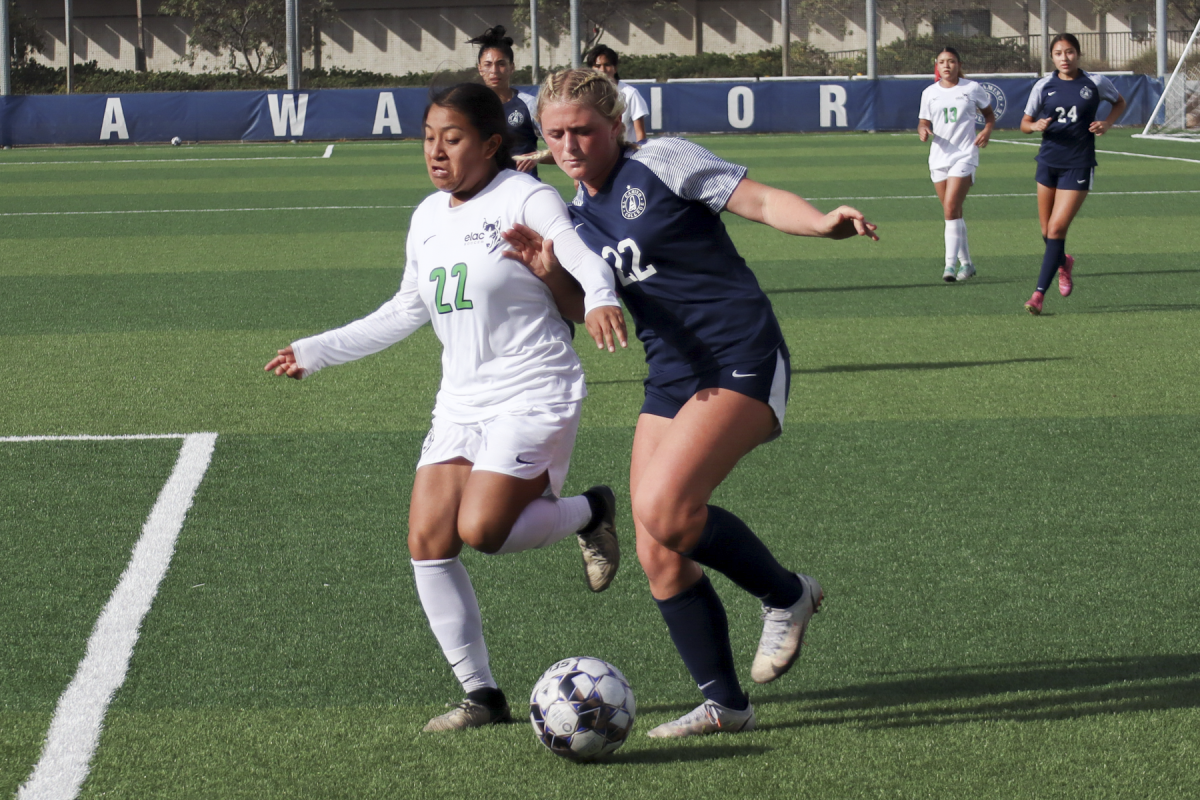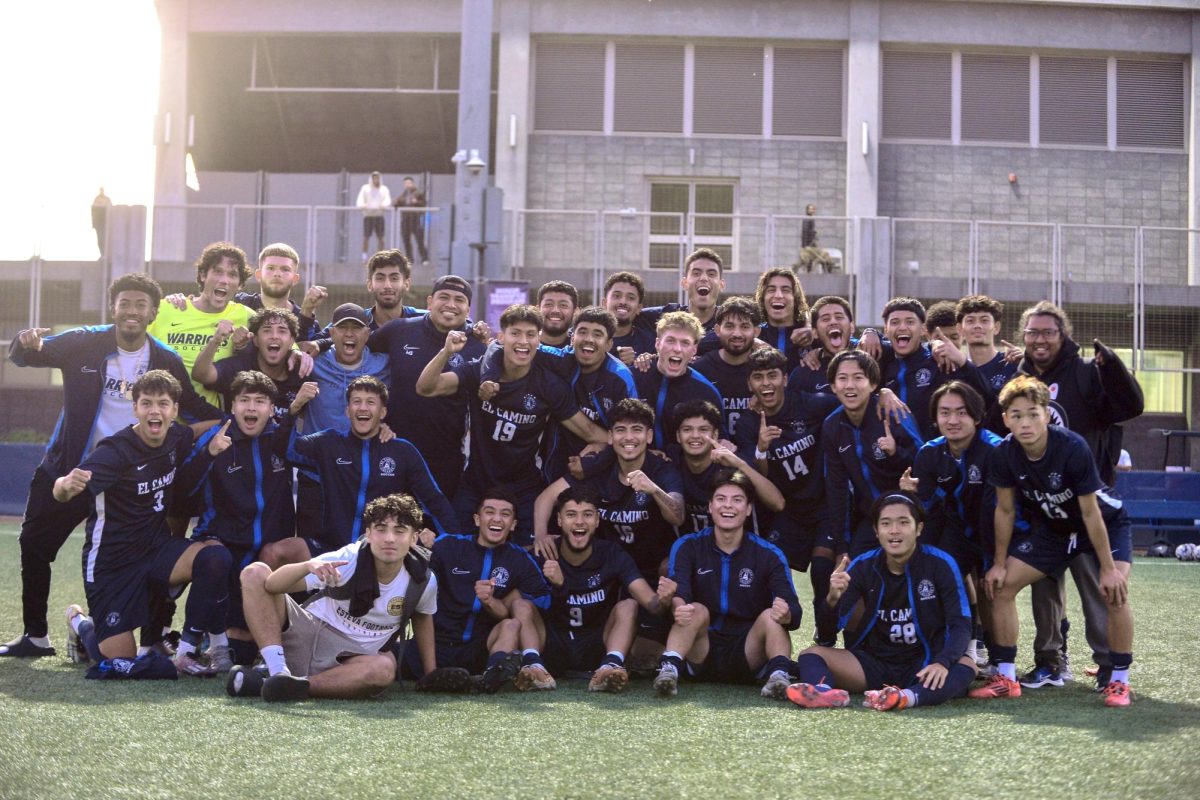If a coach’s principles are reflected in their coaching philosophy, then their coaching approach is reflected in their style.
The coaching leadership style used by El Camino coaches involves a leader assisting a new team member with routine responsibilities.
They interact closely with the members, provide answers to their inquiries, offer improvements and set goals for them.
Coach Mike Jacobson’s experience playing soccer professionally for a few years on the east coast and his lifelong passion for the game inspired him to pursue teaching.
He realized once his playing career was over, he would always like to be involved in soccer, so he began coaching when he was young.
Jacobson didn’t realize that when he first began coaching at El Camino, but now that his soccer team is ranked second in the nation and has gained national recognition, there are great expectations.
His soccer team has been to the final four before and has been ranked at the national level over the last three years.
“My athletes have taught me to be more patient and with that patience has taught to me to become a better listener since I’ve been a coach at El Camino,” Jacobson said.
LeValley Pattison, coach of the women’s beach volleyball team, believes in rewarding players for their efforts and emphasizing doing things well.
Pattison began her volleyball career as a student-athlete at El Camino College, where she liked playing and gained some coaching experience while still in high school.
She decided she wanted to be involved with the sport and coach at a college rather than a high school.
“I have high expectations for all of my players, I expect for them to show effort by coming to practice on time and show every day for the support of teammates,” Pattinson said.
Assistant coach for the women’s volleyball team, Liz Hazell believes players should be coached aggressively but intelligently.
Hazell’s father, Tom, previously coached wrestling at El Camino, gave her insight into how much fun coaching can be and how she can be surrounded by people who loved the same sport.
“Ball control and passing are two important skills that Hazell wants her volleyball players to master to be efficient and wear down the opposition,” he said.
Anton Arrache, coach for women’s soccer, looks to create a positive environment for the athletes and encourages them to grow and develop their skills in soccer and as people.
When Arrache was a young soccer player, he had a mentor who was a coach. This coach inspired Arrache to coach others and he aspired to follow in his footsteps.
Arrache expects his athletes to approach him honestly and with a positive attitude throughout practices, games and other activities.
“Every day is a lesson in life … The obstacles that soccer players encounter and my ability to put myself in their position and consider things from their perspective are the most important things to me because they help me develop as a person and a coach,” Arrache said.
Robert Uphoff, coach of the men’s basketball team, has the coaching philosophy to reach each player to see where they are mentally and physically; but at the end of the day, he expects discipline and accountability from good teammates.
When it came to coaching college basketball, Uphoff grew up playing basketball. In his first game, he understood how big of an impact he could have on future basketball players and instantly fell in love with teaching basketball.
The expectation for Uphoff’s players is they will perform well as college students.
Students must take care of their academics since part of his work is to assist them in progressing to a four-year basketball level. Additionally, he encourages the players to arrive at practice and games with a positive mindset.
“I’ve learned to develop empathy for the players because they may be going through things that I am not aware of,” Uphoff said. “I also encourage open communication so that players can be honest and upfront if they are having problems that would negatively affect their performance.”
Gifford Lindheim, coach of the men’s football team, practices coaching with moral character and encourages his players to develop as individuals as well as football players.
To demonstrate his love of football and his early experience playing the sport, as well as engage with young people and display his competitive nature, Lindheim started teaching.
Although Lindheim isn’t the kind of coach to have a lot of regulations, he does want his players to commit to the program by working hard, being excellent teammates and putting the team before themselves.
“I learn every day from my athletes,” Lindheim said. “But the biggest thing is that as I get older, they keep on sharing what’s new in their generation, so I get a chance to peer into the lives of young people.”









